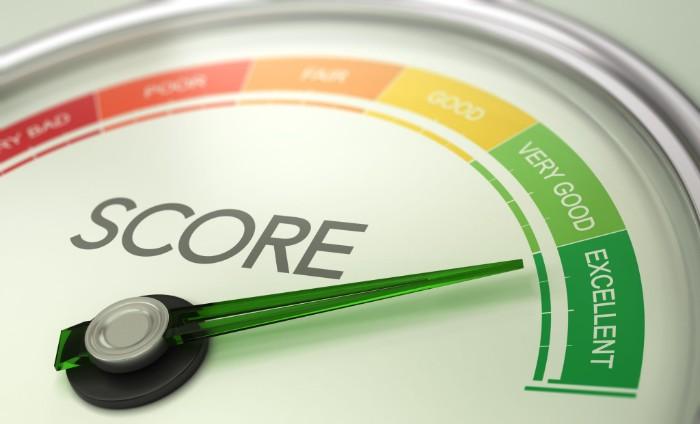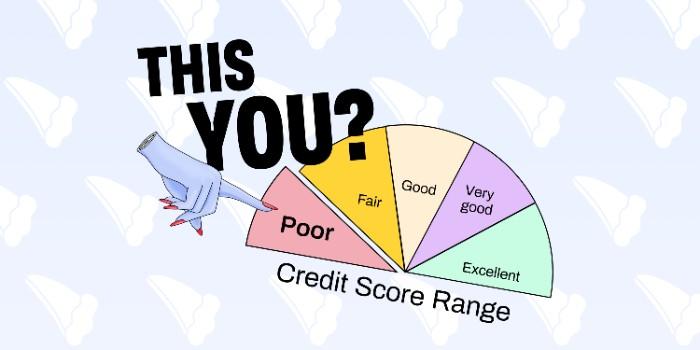What Credit Score Should You Have?
Mar 12, 2023 By Kelly Walker
What credit score should you have? It's a common concern amongst individuals today. Keeping up with your credit score can be tricky, but the good news is that setting and maintaining an ideal credit score isn’t impossible.
Achieving a healthy credit range of 700-750 or higher will help put you in control of your financial life. This blog post will explore achieving and maintaining a great FICO®.
Score so you can live comfortably and make major purchases without worrying about applying for loans or taking out cards that could affect your debt ratio negatively.
Introducing Credit Scores – What Are They and How Do They Work
Credit scores are numeric ratings that indicate how creditworthy you are. They range from 300 (lowest) to 850 (highest). Lenders use these scores to determine how reliable and responsible a borrower is and whether they’re worthy of being approved for loans or other forms of credit.
Credit bureaus calculate your credit score using various factors such as payment history, how much you owe, and how long you’ve had credit. The information used to calculate your score is taken from your credit reports. Your credit report includes data on all your accounts with financial institutions, including mortgages, car loans, revolving lines of credit, and other types of accounts.
The Different Levels of Credit Scores

When it comes to credit scores, there are five main levels: Very Poor (300-579), Fair (580-669), Good (670-739), Very Good (740-799), and Exceptional (800-850). Generally, the higher your score is within a range, the better your chances of getting approved for credit or loan applications.
For example, if you have a score of 690, you may be approved for credit, but the terms and interest rates likely won’t be as good as someone with a score of 730. What Credit Score Should You Have?
Ideally, you should aim for a credit score of 700 or higher. This is considered the average “good” range and will help you qualify for the best loan terms, lower interest rates, and access to high-value credit cards.
These include paying bills on time, reducing the amount of credit you’re using, and checking your credit report regularly to ensure that all the information is accurate. Additionally, it's important to check in with your credit bureau once a year as they may be able to remove inaccurate or out-of-date information that could be lowering your score.
By taking these steps, you can increase your credit score and get closer to reaching the ideal 700+ range. A good credit score will give you more financial freedom and flexibility, so taking proactive steps to maintain a healthy level is important.
Determining the Ideal Credit Score for You
Your credit score reflects your financial health, so it’s important to take steps to ensure that you maintain an ideal level. What Credit Score Should You Have?
The answer depends on your situation. Your credit score should be based on your lifestyle, financial goals, and what type of lender you may need to work with in the future.
If you plan on purchasing a house or car, having a higher credit score will help you qualify for better terms and interest rates. On the other hand, if you aren’t expecting to make any major purchases soon, then keeping your credit score in a “good” range should suffice.
No matter your credit score, staying on top of your finances and keeping tabs on your credit report is important. This will ensure that you have an accurate reflection of your financial health and the best chance of getting approved for loans or major purchases.
By understanding What Credit Score Should You Have, you can be better prepared to manage your finances and make sound decisions about the future. With proper knowledge, anyone can achieve an ideal credit score and reap the rewards of having a good credit rating.
Strategies for Improving Your Credit Score Quickly and Easily
If you’re looking to improve your credit score quickly and easily, there are several strategies that you can use. One of the most important is to develop a budget and ensure that you aren’t spending more than you can afford.
Keeping track of all your expenses and creating a budget can help you stay on top of your finances and avoid accumulating more debt. Pay off any existing debts as quickly as possible, as this will help to improve your credit score.
Reviewing your credit report regularly for any mistakes or errors that may lower your score is also a good idea. If you identify anything inaccurate or outdated, you can ask the credit bureau to remove it.
You should build a good credit history by using your credit cards responsibly. This means making payments on time and not maxing out your limit. What Credit Score Should You Have? By taking these steps, you can quickly and easily improve your credit score and reach an ideal level.
Learning from Your Mistakes and Avoiding Common Pitfalls

If you have a low credit score, it doesn’t mean that you are doomed forever. What Credit Score Should You Have? Learning from your mistakes and avoiding common pitfalls can help you improve your credit rating.
It's important to understand the factors that affect your credit score and take steps to correct any errors in your report. Furthermore, you should be mindful of how credit card issuers use their criteria to determine the best customers and ensure that your spending habits reflect this.
What Credit Score Should You Have? It is important to remember that there is no single “ideal” score range, as it depends on your individual financial goals and needs. What matters most is that you take proactive steps to improve your credit score and maintain a healthy level. By doing so, you can reap the benefits of having a good credit rating and enjoy more financial freedom.
Resources to Help Track Your Credit Score and Keep It High
Now that you know what credit score you should have, it’s time to take steps to ensure that you maintain an ideal level. Fortunately, many resources are available to help track your credit score and keep it high.
Credit score tracking tools allow you to monitor your score over time and compare it with others in the same age and income bracket. What Credit Score Should You Have? These tools often provide personalized tips and suggestions to help you improve your score quickly and easily.
You can also find helpful advice from reputable organizations like the Consumer Financial Protection Bureau or the National Foundation for Credit Counseling. What Credit Score Should You Have? They offer free online resources that can help you understand your credit score and make informed decisions about how to manage it.
Finally, What Credit Score Should You Have? It is important to remember that a good credit score only happens after some time. Building an ideal rating takes time and effort, but with the right knowledge and resources, you can succeed. What Credit Score Should You Have? Moreover, you can take pride in knowing that your hard work and dedication have helped you secure a healthy financial future.
FAQs
What is a good credit score for my age?
The ideal credit score for any age varies based on the individual's financial situation and goals. Generally speaking, a good credit score is around 700 or higher.
How can I improve my credit score?
Improving your credit score requires time, discipline, and dedication. Staying on top of your credit report by regularly reviewing it for errors or outdated information is important. you should pay bills on time, use credit cards responsibly, and avoid maxing out your limit.
What happens if my credit score is too low?
A low credit score can make qualifying for loans or other financial products easier. You may be required to pay higher interest rates and fees on any loan you obtain. Your credit score can also affect your job prospects, so it’s important to improve it.
Conclusion:
Understanding what a good credit score means to secure your financial future is important. Aiming for 750 or above is the gold standard, but it may take time and dedication, depending on where you're starting.

Mar 24, 2023 Rick Novak

Feb 04, 2023 Rick Novak

May 10, 2023 Kelly Walker

Mar 13, 2023 Rick Novak

May 10, 2023 Kelly Walker

Oct 11, 2023 Kelly Walker